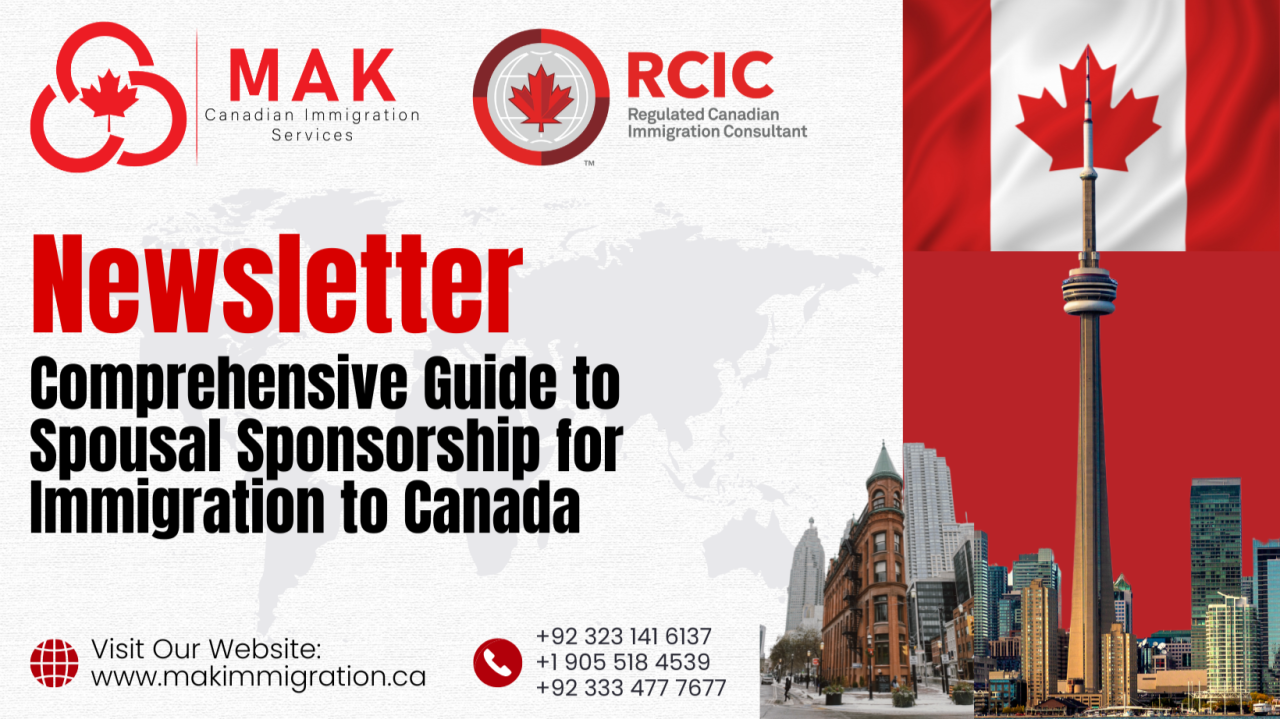After economic immigration, family reunification is the second most common reason for newcomers to Canada. In 2024, the IRCC expects these pathways to admit 114,000 new permanent residents. They include parents, grandparents, children, and dependents, and spousal sponsorship.
By sponsoring a spouse, foreign nationals can eventually become permanent residents themselves by joining their spouse, common-law partner, or conjugal partner who are Canadian citizens or permanent residents.
Spousal sponsorship can be obtained in one of two ways: either inland (applying from within Canada) or outland (applying from outside Canada).
The sponsor must fulfill specific eligibility conditions in both cases. They must:
- Be at least eighteen years old;
- Be a citizen or permanent resident of Canada;
- Not be incarcerated, bankrupt, subject to a removal order, or accused of a major offense;
- And not have been sponsored to Canada as a spouse in the previous five years.
Additionally, sponsors need to be ready to sign a financial commitment. This implies that, even during a breakup, they are legally required to provide for their common-law partner or foreign national spouse’s necessities for three years.
According to Immigration, Refugees and Citizenship Canada (IRCC), basic needs include:
- Necessities for daily life, such as food, clothing, and shelter;
- Dental and eye care, as well as other medical requirements not covered by public health facilities.
The relationship also determines eligibility for the paths.
- Spouse: Legally married.
- Common-law partner: A couple who have lived together in a marital-like arrangement for at least 12 consecutive months.
- Conjugal partner: A committed relationship that has lasted longer than a year but has been hindered by cultural or religious beliefs or immigration restrictions.
Both inland and outland spousal sponsorship applications must be processed within the
IRCC’s 12-month service standard, which is the amount of time the government considers appropriate.
Inland sponsorship
Foreign citizens must have valid temporary resident status in Canada, either as a visitor or with a work or study permit, before choosing the inland sponsorship track for their spouses and partners.
The sponsored partner may be able to apply for a Spousal Open Work Permit (SOWP) concurrently with their application for permanent residency if they are already residing in Canada.
Common-law partners and spouses must reside together at the time of application. Applications for domestic sponsorship are not accepted from those who are married.
Additionally, the IRCC advises against leaving Canada for persons seeking permanent residency through domestic sponsorship, as they might not be allowed to return if they do leave, particularly if they require a guest visa.
Sponsorship from Outside
Couples who are unable to live together in Canada may be eligible for outland sponsorship. If all other requirements for spousal sponsorship are met, spouses, common-law partners, and conjugal partners may apply.
The sponsor typically resides in Canada. While awaiting a decision on their application, the foreign citizen may visit Canada regularly. For sponsored partners who reside in Canada and are aware that they will have to travel abroad and back while their application is being processed, outland sponsorship might be the best option.
MAK Immigration Consultants are here to assist you with expert guidance and support throughout your spousal sponsorship journey.

